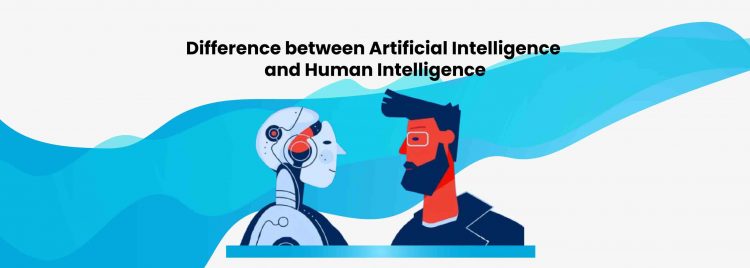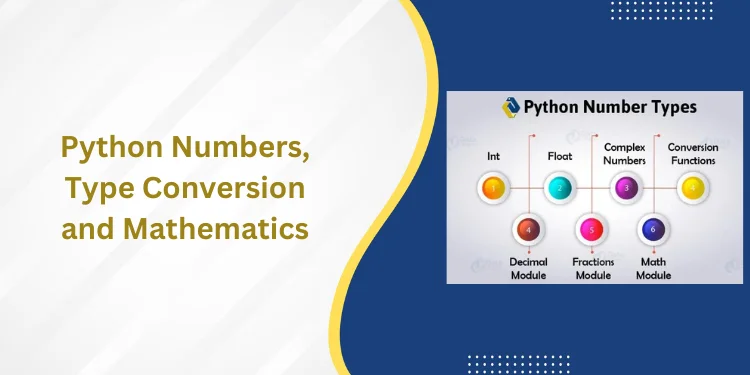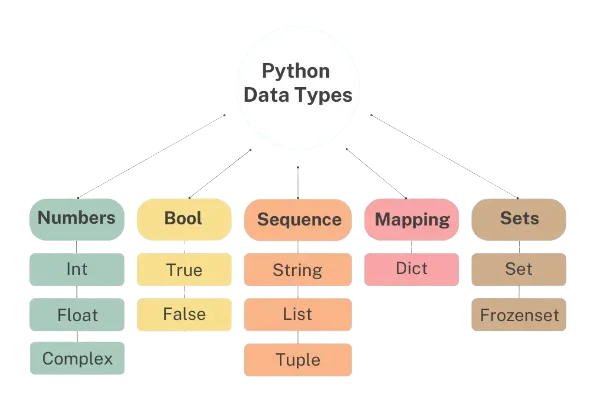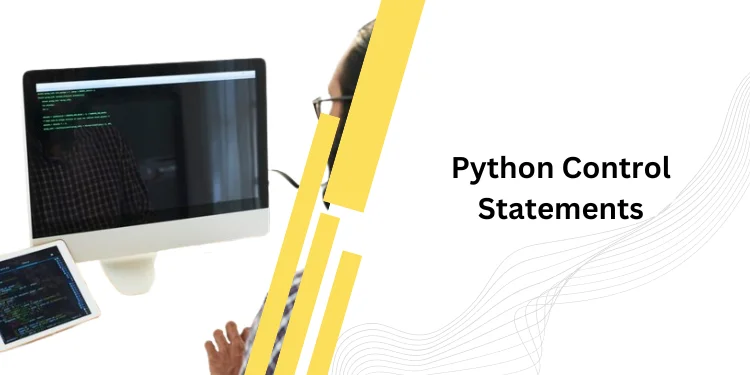Introduction to the difference between Artificial Intelligence and Human Intelligence
What is the difference between artificial intelligence and human intelligence? or what is Artificial Intelligence and Human Intelligence? The greatest concern is that in a few years, AI would “replace” humans and outsmart them. But this isn’t totally accurate. Despite the fact that AI has progressed to the point where robots can make good decisions and make intelligent judgments, AI cannot function properly without relying on fundamentally human characteristics such as human intuition.
“Human Intelligence is a gift from God to humanity, but Artificial Intelligence is a product of humans Intelligence”
The above quote is true and it is the most important difference between Artificial Intelligence and Human Intelligence whether human or artificial, plays a critical role. Human intelligence is a trait that aids humans in learning, comprehending, and solving issues with great ideas, whereas artificial intelligence is a system that replicates human intellect based on the data it receives.
Data Mining is very important for both AI and Human Intelligence. You can imagine how much easier our lives would be if machines could do tasks identical to those performed by the human brain. Are you still debating whether or not artificial intelligence can match human intellect? We are certain that you will find the answers to your queries by reading our blog.
Let’s go right to the point and discover the difference between artificial intelligence and human intelligence. This blog also discusses the role of artificial intelligence in the human world, artificial intelligence vs. human intelligence, artificial intelligence’s effects on the future of jobs and the economy, and many other topics in depth.
What is Intelligence?
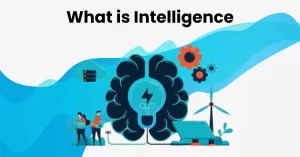
Before we proceed to the topic of Artificial Intelligence and Human Intelligence and their differences. It’s preferable to know the meaning of Artificial Intelligence and Human Intelligence, and Intelligence itself. If we can’t define what intelligence is then how we can understand differences.
We’ve all undoubtedly heard the terms artificial intelligence and human intelligence tons of times and have a broad idea of what it means. For decades, however, members of the psychology field have been debating the idea of intelligence.
Higher-level abilities (such as abstract thinking, mental representation, problem-solving, and decision tree), the ability to learn, emotional understanding, creativity, and adaptive adaptability to meet the needs of the environment have all been classified as intelligence.
Psychologists often define intelligence as a composite of several different talents rather than a single quality. The following aspects of intelligence have been the focus of AI research:
- Learning
- Reasoning
- Problem-solving
- Perception, and language usage
Let’s get started with the Difference between Artificial Intelligence and Human Intelligence by looking at each term in-depth.
What is Artificial Intelligence?
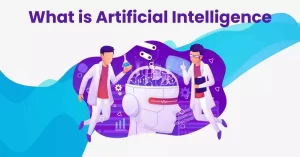
Artificial Intelligence (AI) has progressed from a science fiction concept to reality and now that AI has become a mainstream technology in the current market and is part of the average person’s daily life, a new argument has erupted: the difference between Artificial Intelligence and Human Intelligence. It is important to learn the basics before learning the difference between Artificial Intelligence and Human Intelligence
Definition of Artificial Intelligence
Artificial Intellect is a subset of Data Science that focuses on creating intelligent computers that can do a variety of jobs that would normally need human intelligence and cognition. These intelligent devices are capable of learning from past experiences and data, assessing their surroundings, and taking appropriate actions.
Artificial intelligence (AI) is an interdisciplinary study that draws on concepts and methods from a variety of disciplines, including computer science, cognitive science, linguistics, psychology, neuroscience, and mathematics. In a Nutshell, the replication of human intellectual processes by machines, particularly computer systems, is known as artificial intelligence.
Learning the definition of artificial intelligence and human intelligence will let us understand the topic in depth.
Types of Artificial Intelligence
Artificial Intelligence can be classified in a variety of ways. The most common categorizations are based on functionality and based on AI’s functionality and the difference between Artificial Intelligence and Human Intelligence. The flow diagram below depicts the many forms of AI
Type 1
- Narrow AI
Narrow AI is a sort of AI that is capable of doing a certain task intelligently. In the area of artificial intelligence, narrow AI is the most frequent and currently accessible AI.
- General AI
General AI is a sort of intelligence that is capable of doing any intellectual work as well as a human. The goal of general AI is to create a system that can learn and reason like a person on its own.
- Strong AI
Super AI is a degree of system intelligence at which machines may outsmart humans and execute any task better than humans with cognitive qualities. It’s a result of AI in general. But It is not possible now and it’s the primary difference between Artificial Intelligence and Human Intelligence.
Type 2
- Reactive Machines
The most basic kinds of Artificial Intelligence are pure reactive robots. Such AI systems do not keep track of memories or previous experiences in order to make decisions in the future. These robots just consider current circumstances and respond in the best way feasible. Reactive machines, such as IBM’s Deep Blue system, are one example. - Limited Memory
Because these AI systems have memories, they may draw on prior experiences to help them make better judgments in the future. This is how some of the decision-making mechanisms of self-driving automobiles are built. - Theory of Mind
The phrase “theory of mind” comes from the field of psychology. the difference between Artificial Intelligence and Human Intelligence When it comes to AI, it ensures that the system will be able to recognize emotions because of its social intelligence. This sort of AI will indeed be able to predict human behavior and infer human intents, which is an essential talent for Ai technologies to become valuable members of human groups. - Self Awareness
AI systems that fall under this category have a feeling of self, which gives them awareness. Self-aware machines are aware of their own current condition. This form of artificial intelligence does not yet exist. We can conclude it as one of the differences between Artificial Intelligence and Human Intelligence.
Example of Artificial Intelligence
Let’s have a look at how artificial intelligence affects us in the human world. We use artificial intelligence where human intelligence is lacking. That’s the main intent to look at the examples of artificial intelligence to know the difference between Artificial Intelligence and Human Intelligence:-
- Siri, Alexa, and other smart assistants
- Self-driving cars
- Robo-advisors
- Conversational bots
- Email spam filters
- Netflix’s recommendations
Human Intelligence
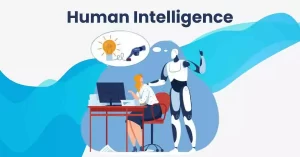
Definition of Human Intelligence
Human intelligence refers to a person’s academic capacity to think, learn from diverse expressions, absorb complicated concepts, solve numerical problems, adapt to new situations, influence one’s surroundings, and communicate with other people. What causes the human mind so astonishing is that it is fueled by abstract emotions such as keenness and inspiration, which enable humans to achieve difficult psychological tasks.
Human intelligence is distinguished by the fact that it is underpinned by abstract emotions such as self-awareness, passion, and motivation, which enable humans to complete complicated cognitive tasks. Understanding both types of intelligence will let us know the difference between Artificial Intelligence and Human Intelligence
Role of Artificial Intelligence in Human World
Numerical cycles affect increasing calculating capability to deliver faster and more exact models and evaluations of operational systems, or improved depictions and blends of large data sets, which are the foundations of artificial intelligence improvements. Nonetheless, while these ground-breaking inventions can do specific tasks with more efficiency and precision, human talent plays a critical role in designing and implementing AI innovation that’s an important difference between Artificial Intelligence and Human Intelligence.
Human intelligence is what influences the growth and adoption of man-made awareness, as well as the creative arrangements that go with it. Through simple reasoning, human intellect seeks to answer the question “why” and thinks “imagine a scenario where.” Because complicated challenges and the nature of information continue to put engineering design to the test, human oversight, competence, and quality assurance are essential when employing AI-generated results.
Comparative Difference between Artificial Intelligence and Human Intelligence
The electrical characteristics of certain cells in brain network simulations were tweaked in a recent study, and the networks learned quicker than simulations with matched cells. They also discovered that the networks needed less modified cells to get the same outcomes and that the process used less energy than ones with identical cells. One of the differences between Artificial Intelligence and Human Intelligence
These discoveries explain why human brains are so adept at learning and might help us develop stronger AI systems like virtual assistants that can recognize faces and voices, as well as self-driving vehicle technology.
A head-to-head comparative difference between Artificial Intelligence and Human Intelligence is:-
Based-on Nature
AI strives to construct computers that can copy human behavior and do human-like tasks, whereas Human Intelligence aims to adapt to new surroundings by combining diverse cognitive processes. The human brain is analog, whereas machines are digital. It’s a basic difference between Artificial Intelligence and Human Intelligence
Based on Functioning
Humans rely on the memory, computational capacity, and thinking abilities of their brains, but AI-powered robots rely on data and instructions input into the system. One of the other generic differences between Artificial Intelligence and Human Intelligence.
Based on Learning Power
Learning from numerous occurrences and prior experiences is at the heart of human intelligence. It’s all about learning from one’s blunders through trial and error throughout one’s life. Human intelligence is defined by intelligent cognition and intelligent activity. Artificial Intelligence, lacks in this area – robots cannot be logical and reasonable. Machines can study from data and via constant training, and they’ll never be able to think as humans do. While AI-powered systems are capable of doing specialized jobs successfully, learning a totally new set of capabilities for a new application domain might take years. Another primary difference between Artificial Intelligence and Human Intelligence.
What Artificial Intelligence can do and Human Can’t
Recent AI advances have come closer to mimicking human intellect than ever before, yet computers are still well beyond what human minds are capable of. What distinguishes humans is our capacity to apply gained information with such logic, rationality, knowledge, learning, and experience. Generic difference between Artificial Intelligence and Human Intelligence.
Machines could be able to replicate human behavior to some level, but when it comes to making rational judgments as we do, their understanding may break apart. Machines with artificial intelligence make judgments based on experiences and their associations with them, but they lack “common sense.” In terms of “cause” and “effect,” AI systems are illiterate. Real-world problems, on the other hand, necessitate a completely human approach.
Although AI has made our jobs simpler in a variety of ways and continues to improve. However, there have been notable AI setbacks that already have raised concerns role of artificial intelligence and human intelligence:
- When an Uber self-driving autonomous car, while under computer control, murdered a pedestrian, or
- For example, IBM’s Watson Supercomputer, which is powered by AI, advised “unsafe and inaccurate cancer therapies,”
Today, AI experts are concentrating on strategies to avoid such mishaps while developing algorithms and boosting AI’s capabilities. With reliable data, we may soon be able to create AI that is compatible with our human morality and efficiency. To protect people in life-threatening circumstances, we need to include natural human intuitions, instincts, and reactions into AI computers. Human precision, timeliness, and quality judgment are also important variables that must be included in AI input algorithms. With that in mind, let’s look at how the human mind develops and responds to these characteristics. Guided learning and mentorship are essential components of human intelligence, which AI cannot replace.
What Human Intelligence can do and Artificial Intelligence Can’t
Humans have a one-of-a-kind capability to absorb and apply what they’ve learned through logic, reasoning, and comprehension. Real-world circumstances necessitate a human-specific comprehensive, logical, rational, and emotive approach. That’s what separates artificial intelligence and human intelligence from each other.
The dispute of the difference between artificial intelligence and human intelligence isn’t a fair one. While AI has assisted in the growth of intelligent robots that can outperform humans in some areas, they have a long way to go before they can equal the human brain’s potential. Despite the fact that AI systems are developed and educated to replicate and simulate human behavior
, they are incapable of making reasonable judgments.
Learning is not a one-time experience; it is a continuous process of acquiring and digesting information that eventually adds to our knowledge. Each person’s learning experience is unique, and it is a great tool in educating and mentoring others. Mentor-guided learning not only allows you to develop skills more quickly but also allows you to advance in your job. A mentor offers real-world experience to your study, allowing you to relate your learning to the actual world. A coach can help you comprehend things at a micro-level and coordinate and modify your learning behavior on many social and psychological levels during your development period. That’s what separates artificial intelligence and human intelligence from each other.
That is how our educational system molds our minds, and online education has taken it a step further by offering human-led classes. No technologies can mentor like humans/ Learning cognitive processes connected to human-led online education. We live in an online world where massive volumes of data are sent at a single glance. Despite having access to the greatest material accessible online, we occasionally stray from our objectives.
Vivek brought out that the risk of eliminating human touch entirely in e-learning has the following repercussions.
- It may result in a loss of motivation. As solitary contributors, we may pay less attention to the task at hand and, as a result, fail to finish our learning trip. Having a tutor intervention offers humanness in learning minimizing motivation concerns in learners.
- This can result in a loss of commitment. While we have somebody to look up to, be inspired by, and most importantly, be accountable to, we learn more and stay more devoted to our goals. Humans are social beings, and learning, like everything else, needs a community where people can share freely and learn from one another.
- Ultimately, mentorship is also the one who helps you achieve your objectives. A mentor shows you the road and assists you in preparing for your future job path. That is why technology will never be able to completely replace humans. Humanity in ed-tech is only one illustration of how people will triumph over machines.
Conclusion
The debate is still going on about the difference between artificial intelligence and human intelligence and derivatives topics of difference between Artificial Intelligence and Human Intelligence such as ‘is human intelligence smarter than artificial intelligence in future?’ and that’s a topic for another blog. We can apparently say that artificial intelligence isn’t going to replace human intelligence as of now. The future is uncertain. We can focus on today and the implementation of artificial intelligence to solve our current problems.
Artificial intelligence has progressed from science fiction to reality, and there is little uncertainty about ai technology is impacting every sector and propelling the globe forward. However, it is still impossible to perfectly duplicate human intellect. Experts believe that computers will not be able to duplicate human cognitive processes in the near future. Because scientists and experimenters are still baffled by the maze that lies underneath the human brain process. It’s exceedingly unlikely that we’ll ever create machines that really can think like humans.
Both artificial intelligence and human intelligence have their role in our world. One can do creative things and another optimize the system with accuracy that’s human intelligence and artificial intelligence respectively.
Frequently Asked Question’s
1. What are the main differences between natural intelligence and Artificial Intelligence?
If we compare it to nature, human intelligence aims to adapt to current circumstances by combining a variety of cognitive functions, whereas artificial intelligence aims to construct gadgets that mimic human behavior and do human-like behaviors.
As a result, the human brain is analog, whereas computers are digital. The fundamental distinction is that humans employ their brains, thinking abilities, and memory, whereas AI computers rely on data provided to them. It’s one of the basic Difference between Artificial Intelligence and Human Intelligence.
2. What is artificial intelligence?
Artificial Intellect is a branch of Data Science that focuses on programming intelligent computers to perform tasks that would ordinarily need human intellect and cognition. These smart gadgets can learn from their prior experiences and data, analyze their environment, and take appropriate responses.
Artificial intelligence (AI) is an interdisciplinary field that incorporates ideas and methods from a wide range of fields, including computer science, cognitive science, linguistics, psychology, neuroscience, and mathematics. Artificial intelligence, in a nutshell, is the imitation of human intellectual processes by computers, particularly computer systems and It’s one of the fundamental differences between Artificial Intelligence and Human Intelligence.
3. Why do we need artificial intelligence?
AI is significant because it allows typically human capabilities to be implemented in software at a low cost and on a large scale for the first time. AI may be used in every industry to open up new possibilities and increase efficiency.
- AI is important since it permits the software to accomplish human capabilities such as planning, communication, and perception more effectively, efficiently, and at a lower cost.
- General analytical activities, such as spotting patterns in data, that’ve been done by software for years may now be done more successfully using AI.
- In most corporate sectors and consumer applications, the automation of these talents opens up new possibilities.
- Autonomous cars, automated medical diagnosis, voice recognition for the human-computer interface, intelligent agents, automated data synthesis, and better decision-making are just a few of the significant new products, services, and capabilities offered by AI.
- Today, AI has a plethora of practical applications that are allowing business revenue growth and cost reductions in established industries.
4. What are artificial intelligence examples?
Artificial intelligence (AI) is a means for a computer to respond to data utilizing statistical analysis, allowing it to interpret, analyze, and learn from data using specially built algorithms. This is a computer-assisted procedure. Artificially intelligent robots can recall patterns of behavior and alter their reactions to conform to or promote changes in those behaviors. Here are some of the examples of artificial intelligence:-
- Facial recognition
- Text Autocorrect
- Search and Recommendation
- Digital Assistants
- Chatbots
- Maps and Navigation
- Social Media
These examples of artificial intelligence demonstrate why AI is discussed and applied in so many places. AI affects nearly every aspect of human lives. Google Maps will take you to a new restaurant for supper. We use artificial intelligence where human intelligence is lacking. That’s the main intent to look at the examples of artificial intelligence to know the difference between Artificial Intelligence and Human Intelligence.
5. Is Siri artificial intelligence?
Alexa and Siri, Amazon’s and Apple’s digital voice assistants, are more than just a handy tool; they’re very genuine implementations of artificial intelligence that are becoming more and more integrated into our daily lives.
In order to properly function and execute better over time, they simultaneously rely on natural language production and processing but also machine learning, which are both kinds of artificial intelligence.
6. Will AI be more intelligent than humans?
AI is incredibly beneficial and capable of solving complicated issues that humans are unable to solve. When it comes to some activities, AI outperforms humans. In some cases, AI can produce better results than decision matrices based on human judgment. This is due to its capacity to recognize complicated patterns in enormous quantities of data.
However, AI’s capacity to execute complicated divergent thinking on its own is severely restricted. To put it another way, AI is not smarter than humans. One of the fundamental difference between Artificial Intelligence and Human Intelligence.
7. Which programming language is used for AI?
Python is extensively used for artificial intelligence, having packages for general AI, machine learning, natural language processing, and neural networks, among other uses. Machine Learning is the use of artificial intelligence to create systems that do human-like tasks and reflect human abilities. Both Artificial Intelligence and Machine Learning are intertwined and frequently employed in today’s world.

